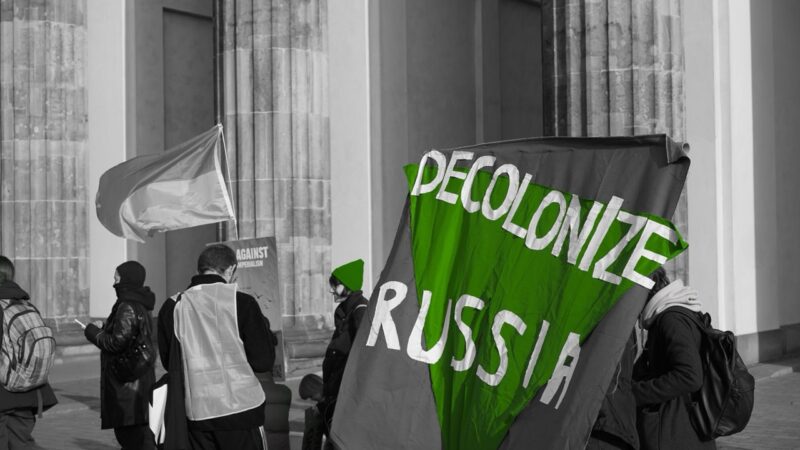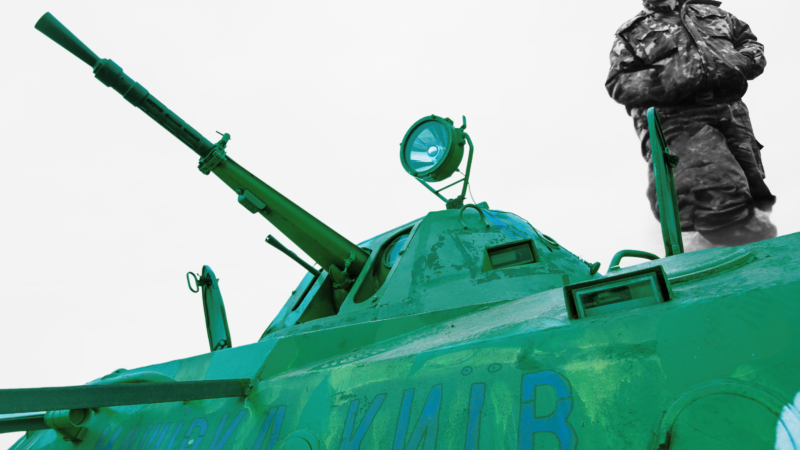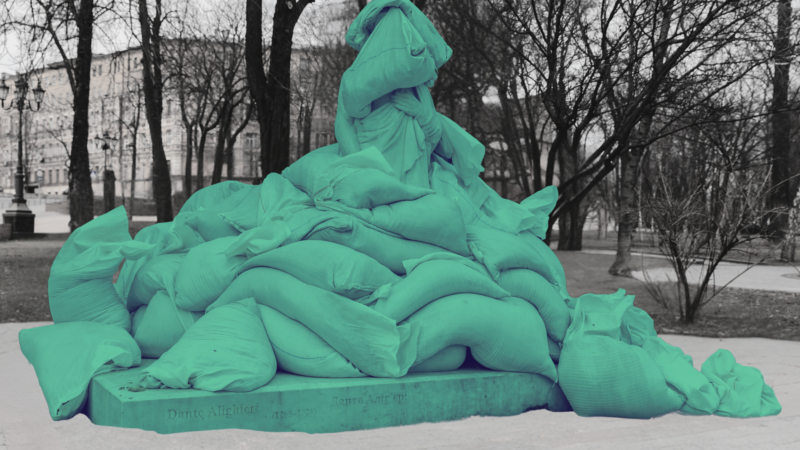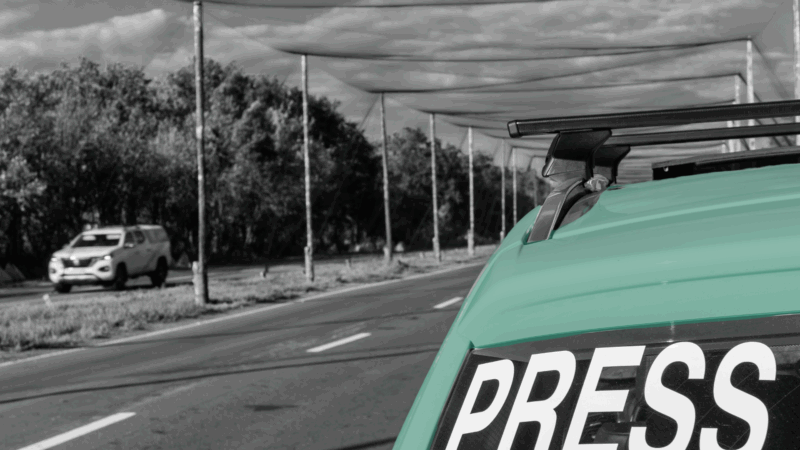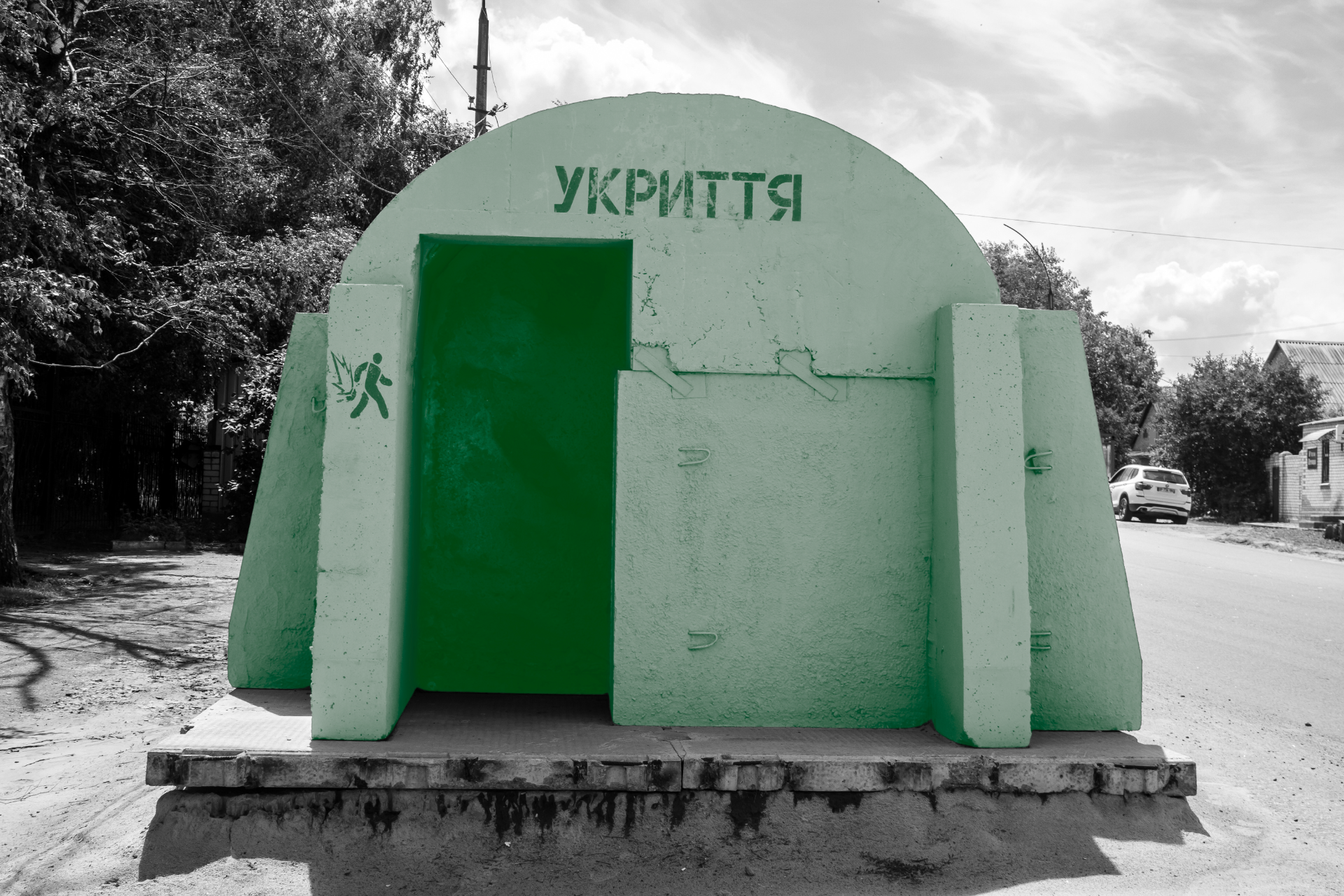Interview with Maryna Shevtsova | “The participation of LGBTQ+ people in the war effort cannot be ignored”
Ostap Kushnir: In your opinion, what major gender-based challenges in social and political life has Ukraine faced, resolved, or failed to resolve since the beginning of the war in 2014?
Maryna Shevstova: When it comes to legislation, Ukraine has been on the right path and demonstrated good progress. This has happened not without the help of its Western partners. Immediately after Euromaidan in 2014, Ukraine reoriented itself toward integration with the European Union, which was accompanied by technical, economical, financial, political, and other kinds of support from the outside. This also additionally empowered civil society, activists, and individual MPs to push forward for further updates.
Even before Euromaidan, in 2012 Ukraine had adopted anti-discrimination legislation that was important for gender equality. After that, Ukraine adopted a law on prevention of and combating domestic violence; its implementation became a challenge for the country because of the existing stigma related to this kind of crime. In particular, Ukrainians had never been at ease with reporting domestic violence to the police.
Thanks to the EU, US, and Canadian funding and guidance, and also facilitated by local civil society organizations, police officers in Ukraine have completed numerous training and educational sessions since 2014. Special teams have been created and trained to communicate with victims and survivors of domestic violence; and special shelters have been built. These steps are limited and remain utterly insufficient for a large country such as Ukraine; nevertheless, they have been taken.
Then, in 2017 Ukraine introduced a new official position, the Government Commissioner for Gender Policy. That position not only became important for increasing legislative effectiveness, it sent a powerful symbolic message by the sole fact of its existence.
Yet, if one looks at Ukraine’s overall performance with respect to gender equality, it was ranked 74th among 150 countries in the Global Gender Gap Report 2021 compiled by the World Economic Forum (WEF). This is a relatively respectable position in the middle, though I believe that the country could do much better.
Ukraine also did comparatively well, ranked 27th, in an assessment of gender aspects of education. For one thing, national secondary and higher education are highly feminized areas. Many Ukrainian women possess graduate degrees, which make the country one of the world’s leaders in this respect. On the other hand, Ukraine’s system of education is largely underfunded, which prevents all willing women to enroll in post-secondary studies and sometimes casts doubts on the quality of acquired knowledge.
However, unlike the education indicators, Ukraine does only moderately well in gender aspects of economic participation: its position was 44th in the world in 2021. One of the major reasons for this resides in a 23-per cent gender pay gap. In other words, women in Ukraine earn 23 per cent less than men for doing the same job.
As paradoxical as it may sound, in a 2020 nationwide survey almost 80 per cent of Ukrainians said that gender inequality was not among the major problems of their country. A general idea prevails among the population that Ukraine has achieved a certain functional balance and does not need feminist revision of realities or the introduction of additional measures to improve the balance even more.
Next, in the political aspect of gender Ukraine is not doing well. In women’s political empowerment, the country was ranked 103rd in the WEF’s Global Gender Gap Report 2021. The low ranking was assigned notwithstanding the fact that Ukraine introduced a new law on quotas requiring all political parties to have at least 40 per cent women in their election lists. This law unquestionably increased female participation at all levels of decision making, from municipal to national. As of today, Ukraine has a historically high number of women in its parliament, the Verkhovna Rada, as well as women ministers in the cabinet. However, compared to other countries this share—around 20 per cent across all institutions—is not that impressive.
Another achievement that should be mentioned is that the Soviet-era list of professions banned for women was revoked in 2018. This cancellation opened the path for legal employment of women who were de facto working in banned positions, earning much less money, deprived of rights protection and the possibility of official registration, or being forced to agree to being paid “under the table.” One of the direct outcomes of the cancellation was a significant increase in women’s participation in the military, from around 14,000 before 2018 to more than 50,000 today (of whom around 5,000 are now at the front line).
In sum, Ukraine has been steadily improving with respect to gender equality since 2014, but many challenges remain to be addressed. One of them is putting the Istanbul Convention into practice. A convention that aims to prevent domestic violence was ratified in 2022, in partial fulfillment of the requirements for EU candidacy. That ratification was a significant milestone. For many years, feminist activists had been promoting the importance of the convention for Ukraine but could not overcome the resistance, especially from religious institutions. However, as shown in the events of the recent summer, when there is a political will, the opinion of religious institutions stops being pivotal.
Kushnir: In her article for the Forum, Tamara Martsenyuk stated that as of September 2022, “Ukrainian society generally supports egalitarian ideas as to engaging women in the armed forces on a par with men, as well as having a professional army of those enlisted voluntarily.” Do you agree with this statement?
Shevtsova: I read this statement by Tamara, that Ukrainian society supports a professional army which is equally accessible for all willing men and women because it is no longer based on obligatory conscription. If my reading is correct, I fully agree with this statement.
Overall, from what I observe in social media and across civil society, there is no resistance to the fact that women who want to join the army and occupy various positions there can do so. I think that society is ready for women in the army, including women commanders.
However, when it comes to obligatory conscription—and in light of recent rumours that the borders of Ukraine will be completely closed and women will be forced to join the military—I have observed clear discontent and angry opinions across society. People do not accept obligatory conscription for women. There still exists a common perception, when it comes to gender roles, that women have to take care of children and family, while men are supposed to go and defend the country.
Another thing is that mothers who decide to join the army are not treated well after their return. Society is inclined to blame such women for leaving their children behind and neglecting their family duties. This puts additional mental pressure on female soldiers. This pressure is not there for men who go to the battlefield and leave their close ones behind.
Kushnir: How do you see the contribution of Ukraine’s LGBTQ+ communities and individual activists to the war effort? In general, how has the Russian invasion changed gender roles and perceptions in Ukrainian society?
Shevtsova: We are now witnessing history in the making. With the escalated Russian invasion, Ukrainian public opinion was believed to approach the position of gender scholars who had argued that war would cement conservative values. It was widely believed that militarization would lead to the traditionalization of society and reinforcement of traditional gender roles. However, as many sociologists report today, the case of Ukraine is more complex.
Above all there is a general recognition of the role of women in the present war effort. President Volodymyr Zelensky even changed the salutations in his public addresses: he now says “Dear zakhysnyky i zakhysnytsi,” using the word “defender” in both male and female form.
Similar processes are taking place around the LGBTQ+ communities. Since 2015 many LGBTQ+ individuals have been serving openly in the Ukrainian army, and experienced soldiers have been coming out. An official organization has appeared in Ukraine, the LGBT Military, whose members regularly participate in pride and equality marches in Kyiv.
Today, when the scale of the war has expanded grievously and many people are dying on the battlefield, the issue of coming out has become pivotal for many LGBTQ+ individuals. They are doing so in large numbers, and it is a chain reaction—the more people come out, the more others are willing to do so. To be sure, not the least factor in coming out is the desire to be honest with oneself. All LGBTQ+ soldiers know that they can die at any moment, and this discourages them from hiding. Thus, they think that “if I die tomorrow, at least I will die being myself.”
The comings out of people in the military are becoming more public and taking place on social media. I think this is a game changer for a large part of Ukrainian society. A sociological report from Nash Svit demonstrates that attitudes toward LGBTQ+ individuals have improved immensely. Over 63 per cent of Ukrainians today agree that there should be equal rights for LGBTQ+ people.
In the summer of 2022 a petition to the President of Ukraine to legalize same-sex partnerships collected 25,000 signatures, which means that it must be considered. He did so and promised that legalization of same-sex partnerships would be raised after martial law ends.
Today, the participation of LGBTQ+ people in the war effort cannot be ignored. They serve as soldiers and provide support as volunteers. For instance, the organization Insight, which caters to lesbian women and transgender persons, started receiving many requests for humanitarian assistance from women and mothers with kids after the full-scale Russian invasion began. So they even had to mobilize additional resources to help heterosexual women in need.
I know many LGBTQ+ organizations that help soldiers directly by sending equipment, food, and clothing, and the soldiers are aware of whom this aid comes from. They are aware of who runs fundraising and manages supplies. I also know many heterosexual families who stay in shelters created for LBGTQ+ people. Undoubtedly these wartime developments have converted social attitudes toward the LGBTQ+ in Ukraine.
Apart from that, there is a growing wave of Ukrainians who do not want to be associated with Russia. This encourages them to reject Russian homophobia and so-called traditional values, which have little to do with genuine family values. Because of this, I suspect that more and more Ukrainians will strive to be different from Russians, which will make them become more liberal, pro-European, and accepting.
Kushnir: How do you see the probability of the introduction of registered partnerships for same-sex couples in the nearest future in Ukraine? What will be the impact of Ukraine’s status as an EU candidate country on these and other legal processes?
Shevtsova: In Ukraine—the same as in other countries from the EU neighbourhood, primarily Moldova and Georgia—reforms in the sphere of gender equality became possible not least due to Europe’s conditionality. The ratification of the Istanbul Convention is the most recent example. There was much resistance, many people were against it, but things changed when Ukraine’s EU candidate status became at stake.
The paradox is that immediate ratification of the Istanbul Convention was not even a direct demand of the EU. Moreover, many of the Union’s members—including Hungary, Bulgaria, Czech Republic, Latvia, and Lithuania—have not ratified it yet.
I think that society in Ukraine is overall ready for registered partnerships for same-sex couples. However, the probability is very low that this will happen during the active stage of the war. Both the president and the government seem to be reluctant to consider the issue today. In their turn, the interested individuals and activists understand that the right time for such major developments is yet to come.
After the war, when Ukraine is rebuilt with the help of the West, I find it highly likely that the appropriate changes to the legislation will be introduced. Same-sex couples will acquire the right to register their partnerships and marriages. After the war, the EU will possess very strong leverage over the Ukrainian government. For their part, civil society and active grassroots will contribute additional motivation.
Surely, if the war becomes protracted and social conditions deteriorate, Ukrainians may state their famous ne na chasi [not the best time] to same-sex partnerships and marriages and turn their attention to more critical issues. However, this is a worst-case scenario. Personally, I remain optimistic.
To sum up, if you ask me whether Ukrainian society is ready for legal changes in favour of same-sex couples, I will say yes. However, many Ukrainian politicians overestimate the homophobic sympathies of their voters. Last year, when I interviewed representatives of the liberal camp, they were saying things like, “I have nothing against it myself, but this is a political suicide—people are not ready.” In my opinion, this is no longer the truth. Politicians are misjudging their voters, and for no good reason.
Kushnir: How is the EU supporting members of LGBTQ+ communities and women in need who fled the war? What challenges do Ukrainians face after crossing the EU’s border?
Shevtsova: There is no universal answer to this question, as the support depends on specific cases. In the least accepting countries—such as Poland, Slovakia, Romania, or Hungary—the government does not support LGBTQ+ individuals at all. Unfortunately, these are the countries that Ukrainians fleeing the war need to enter first.
In the least accepting countries, the major burden of support rests on the shoulders of civil society. Such is, for instance, the case of Slovenia, where I am currently based. In Poland, the situation looks similar: crowdfunding, offers of shelter, organization of language courses, and other kinds of assistance are performed by the volunteers. The situation may be better in Sweden or Germany, where the government indirectly finances NGOs that work with queer refugees. However, when looking at Central European states, civil society shoulders the entire burden.
Concerning displaced Ukrainian women, what I hear from many volunteers in the EU is that their governments promise to act fast and effectively, but the support is often delayed. When a woman arrives in a given country, she has to endure long bureaucratic procedures that make the provision of immediate help almost impossible. Many women who are not lucky to find accommodation right away end up in very basic shelters. These women are provided with food and clothes, but their living conditions remain dire for months, up to the moment when the government funding arrives. The same applies to work permits—they are not issued immediately due to bureaucratic procedures, and therefore women have to wait for months before they are legally allowed to earn money.
That being said, Ukrainians should not feel ungrateful. The EU governments are trying to do their best to provide support. But in light of lacking mechanisms to cope with the waves of incoming Ukrainian migrants, much of the most-needed work is done by volunteers and private benefactors.
In Poland, where so many migrants have ended up, there is an issue with abortion rights. Being prohibited in the state, it is especially painful for women who got pregnant because they had been raped by Russians. A major political debate broke out recently about how to help these women. They are often so traumatized that it becomes a challenge for them to self-organize and move farther to the West, where abortions are allowed. For such women, the assistance of NGOs and activists is crucial.
We should also acknowledge that in many EU countries Ukrainian communities are supporting Ukrainian migrants. Apart from them, there are communities of other people who came from post-Communist countries and are willing to share the burden. Knowledge of Ukrainian or Russian certainly helps to establish communication in such cases.
On the other hand, there is a backlash in some EU media against Ukrainian women who allege abuses of their situation or who demand high social benefits to obtain a comfortable life in a new place. This backlash is rather unjustified. As a rule, however, Ukrainian women who arrived in the EU are willing to work even in the poorest conditions. They need money and do not know the language. This means that they are often exploited and underpaid.
Kushnir: How does the EU academic community perceive and help scholars from Ukraine?
Shevtsova: We have been discussing this a lot with my colleague sociologists, mostly women, and concluded that all of us have a bit of “imposter syndrome.”
When the invasion started, many Ukrainian scholars were either collaborating with EU institutions or had connections there. For such people, it was comparatively easy to get a position at a new place. Not to mention that many EU institutions swiftly created new openings to accommodate the inflow of scholars. Of course, much depended on the country and the type of institution, but if Ukrainian scholars had connections and qualifications, they could easily find themselves in the EU.
That being said, there is a big cohort of people who cannot benefit from such favourable circumstances. Sometimes they lack degrees or qualifications that are attractive in the EU. For example, a friend of mine has a PhD in English language and literature and it took her a great effort to find employment. None needed her skills or wanted to hire her outside academia. My friend became so desperate that she considered cleaning jobs—though, again, she was denied the option as the employee would had to have paid her according to her background. Eventually, she ended up in a small German town with no university.
The situation is full of absurdities and paradoxes. On the one hand, there is a will and expression of solidarity with Ukrainian scholars in the EU. On the other hand, when it comes to a real-life situation, all institutions and academic communities want people who are familiar and qualified, who pursue attractive research and have dozens of publications. However, such people are neither in major need nor have major issues with employment.
Here in Slovenia, my university opened a position for Ukrainian scholars, and I already know that we will have trouble finding appropriate candidates. The lion’s share of applicants will likely not have a background in the sociology of gender or will not know the language.
Another problem is that the scholars in social sciences—I do not know about other fields—are all placed in the basket of Ukrainian or Eastern European studies. This is quite a narrow field. Very few of the universities are represented in this basket and very few want to advance Ukrainian or regional studies. This means that scholars in need have limited places to compete for. At the same time, if Ukrainian scholars decide to move to a different field of research, they will need to compete there with more experienced colleagues.
Here we face one more absurdity. On the one hand, there is a very narrow bottleneck for Ukrainian social scientists to compete for a limited number of region-focused positions. On the other hand, even if Ukrainian scholars change their field of research, the EU’s academia will still be unable to offer them positions.
Honestly, I think that it is not only the task of academia to help scholars. Having a huge influx of highly qualified and educated migrants, many of whom will stay in the EU for quite some time, governments should consider how to help them adjust to new realities. Many incoming Ukrainians want to work, not sit on the sofa and enjoy migrant benefits.
I also think it is very counterproductive and even dangerous to have so many talented people in the EU who find that their potential and skills get wasted. This may lead to social tensions. Host populations will become irritated that their taxes are spent on migrants who cannot find jobs. In turn, Ukrainians who escaped the war and never thought of self-inviting themselves will become irritated with the impossibility of contributing to host societies. Not to mention that many Ukrainians believe that their husbands and children have put their lives at risk in Ukraine in order to protect EU citizens and Western values.
EU governments should seriously consider how to accommodate highly qualified Ukrainians and make them useful for their local economies. Actually, the solution should have already been invented in 2015, when the Syrian migrant crisis erupted. Unfortunately, I do not see that EU governments learned from their mistakes. This disappoints me a lot.
Kushnir: In your opinion, how many Ukrainians, especially high-quality specialists, researchers, and human rights activists will be comforted by the EU’s living standards and decide to stay there after the war is over?
Shevtsova: A lot will depend on what the host countries will do to integrate Ukrainian migrants. However, in any case, many Ukrainian women and families will consider staying, to give their children a better future. The longer the war lasts, the higher the chance that Ukrainians will permanently settle in the host country after the fighting is over.
Once children feel good at a new place, like their school experience, and learn the local language, then they will not have enough motivation to come back. Their mothers will definitely notice that and do their best to find any jobs, even the lowest qualified, to make their children happy. Also, many new families will be created in the host countries between Ukrainian women and local partners.
I believe that the share of those who will not want to return to Ukraine increases with every month. However, there has not been a similar situation in the past to compare human behaviours. We are witnessing a unique experiment.
